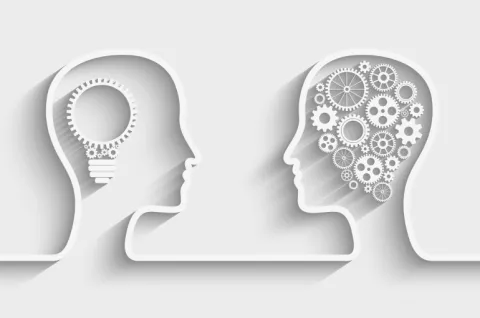Social Media: The Effect on Young People and Eating Disorders

Eating disorders have the highest mortality rate of any psychiatric illness. Those suffering from eating disorders have unhealthy emotions, attitudes, and behaviors surrounding weight, body, and food that can have life-threatening consequences. Many of those who struggle often feel isolated from friends and family, and use extreme tactics to keep their behavior a secret.
The National Eating Disorder Association has found that while there is no single cause of body dissatisfaction or disordered eating, research is increasingly clear that social media is a contributing factor:
- Social media encourages self-comparisons, which is a major contributor to developing body dissatisfaction.
- In addition to creating a negative self-image for some adolescents, social media platforms can also provide those struggling with eating disorders a "community" that can inadvertently worsen their struggles.
- An article in USA Today shows that these online communities promote the notion that an eating disorder is an acceptable lifestyle choice, rather than a serious, and potentially fatal, mental illness.
The prevalence of "pro-ana" (pro-anorexia), "pro-mia" (pro-bulimia) and "pro-ortho" (pro-orthorexia) websites have grown in recent years. Followers of these sites are on every social media platform, giving these communities a global stage to share harmful ideas and photographs. Whether it's on Facebook, X, Snapchat or Instagram, users connect and support one another's self-destructive behaviors through shared tips and tricks.
Perfect Posts - Not So Perfect
Numerous adolescents and young adults have become obsessed with the idea of putting their "best selves" on social media. Many young people spend hours selecting specific filters and practicing the perfect pose in an attempt to show snapshots of successes in their lives.
But what effect are those "perfect posts" having on the teens and children reading them on the other side of the screen? A 2013 study from the University of Michigan found Facebook use led to declines in moment-to-moment happiness and overall life satisfaction.
When someone has developed an eating disorder, their entire life becomes consumed with what and how much to eat, as well as how to deal with "slip-ups" According to the National Eating Disorders Association, on a typical day, children and adolescents ages eight through 18 spend 7.5 hours engaging with some form of media, which can flood their minds with images that are very often unrealistic. This can leave readers feeling inadequate and promote a negative self-image, which has been connected with eating disorder severity.
Anorexia nervosa
- This typically appears in early to mid-adolescence and is characterized by a very restrictive diet, a dangerously low weight, fear of weight gain and distorted body image.
- The mortality rate is 12 times higher than any other cause of death in women ages 15 to 24.
- Between 5 and 20% of individuals struggling with anorexia nervosa will die of complications related to anorexia, with the probability of death increasing as the length of the condition increases.
Bulimia nervosa
- Bulimia is characterized by a cycle of bingeing (eating to excess) followed by behaviors such as self-induced vomiting and/or excessive exercise designed to undo or compensate for the effects of binge eating.
- It is a serious, potentially life-threatening eating disorder that affects one to two percent of adolescents and young adult women.
Orthorexia nervosa
- This isn't currently recognized as a clinical diagnosis in the Diagnostic and Statistical Manual of Mental Disorders, but this term is being used to describe a dangerous obsession with "clean" eating, muscle building, supplement use, and over-exercise.
In many cases, eating disorders start out as an attempt to eat more healthily but progress into a dangerous mental illness with serious health consequences.
Symptoms of Eating Disorders
Symptoms include:
- Inadequate food intake leading to a weight that is too low
- Intense fear of weight gain, obsession with weight and persistent behavior to prevent weight gain despite low weight
- Self-esteem overly related to body image
- Increasing the avoidance of foods without medical advice
- Noticeable increase in consumption of supplements, herbal remedies or probiotics
- Drastic reduction in the opinions of acceptable food choices, such that the sufferer may eventually consume fewer than 10 foods
- Irrational concern over food preparation techniques, especially washing of food or sterilization of utensils.
- Frequent episodes of consuming very large amounts of food followed by behaviors to prevent weight gain, such as self-induced vomiting
- Feeling of being out of control during binge-eating episodes
- Withdrawal from usual friends and activities
Resources Available If you or someone you know is suffering from an eating disorder, don't delay help any longer. Reaching out early could make all the difference during recovery!
- The National Eating Disorders Association offers a confidential Helpline at 866-662-1235
Guest Blogger: Suzanne Allen, CPNP, Pediatric Nurse Practitioner, Division of Adolescent Medicine, UMass Memorial Medical Center - Children's Medical Center
Note: The content of this blog is for informational purposes only. It is not intended for use as diagnosis or treatment of a health problem or as a substitute for the professional consultation of a physician or qualified health care provider. If you have specific questions or concerns regarding a health or medical condition, contact your physician or a licensed health care professional.

